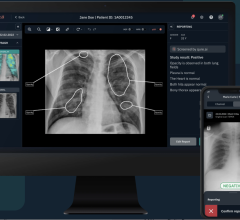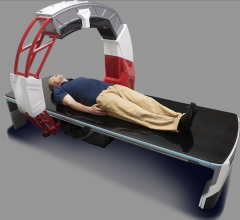
December 8, 2008 - As the next phase in validating advanced computed tomography technology in a clinical setting, Toshiba Medical Systems Corporation (TMSC) will support CORE 320, the largest worldwide multi-center trial comparing the effectiveness of 320-detector row dynamic volume CT to SPECT technology.
The trial will examine whether the combination of CT angiography and myocardial perfusion can identify coronary stenoses that are less than or equal to 50 percent by Quantitative Coronary Analysis (QCA) and correspond to a SPECT perfusion defect. CORE 320 will begin in December 2008. The CORE 320 study will use the Aquilion ONE, a dynamic volume CT system.
CORE 320’s multi-center trial will be lead by primary investigator Dr. João A. C. Lima of Johns Hopkins University School of Medicine, in Baltimore, Md. Johns Hopkins University will also serve as the core site for CT. Dr. Marcelo Di Carli of Brigham and Women’s Hospital, a Harvard teaching hospital, in Boston, Mass. will serve as core site for SPECT. Additional investigation sites will be announced in the coming months.
Prior to CORE 320, Toshiba funded the CorE 64 (Coronary Evaluation using multidetector 64 CT) trial, an international multi-center trial to validate multidetector CT’s ability to detect coronary artery disease (CAD) as compared to conventional coronary angiography (CCA). On Nov. 26, 2008, the New England Journal of Medicine published the results of the CorE 64 trial stating “Multidetector CT angiography accurately identifies the presence and severity of obstructive coronary artery disease and subsequent revascularization in symptomatic patients.”
Another Toshiba trial, faCTor64, the Screening For Asymptomatic Obstructive Coronary Artery Disease Among High-Risk Diabetic Patients Using CT Angiography, Following CorE 64: is being conducted at Intermountain Healthcare’s Intermountain Medical Center in Salt Lake City, where more than 1,000 patients from Utah, women older than 55 years old and men older than 50 years old, are enrolled in the study. Intermountain Healthcare used its diabetes registry of 30,000 patients, who have already received best-practice diabetic care, as a resource to enroll patients.
For more information: www.medical.toshiba.com


 August 09, 2024
August 09, 2024 








